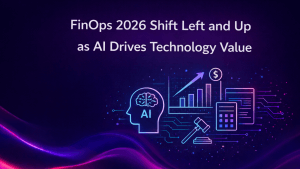In a move that could reshape the business intelligence landscape, last week Zoho Corporation unveiled a major overhaul of its Zoho Analytics platform. This latest release, announced on September 12, 2024, marks a significant leap forward in democratizing self-service BI and analytics for businesses of all sizes. I had the opportunity to sit down with Chandrashekar LSP, managing director, Zoho Canada, to walk through some of the new custom features and integrations of the updated Zoho Analytics platform.
As a long-time observer of the BI and analytics market, I’ve watched Zoho steadily build out its capabilities since the platform’s initial launch in 2009. However, this Zoho Analytics update represents a quantum leap that leverages Zoho’s extensive investments in AI, machine learning, and low-code development. The result is a powerhouse platform that combines ease of use with advanced capabilities typically reserved for data scientists and specialized BI teams.
Watch my conversation with LSP on the updates to Zoho Analytics here:
AI Takes Center Stage
The most striking aspect of this updated Zoho Analytics release is the pervasive integration of AI throughout the platform. Zoho has clearly recognized the transformative potential of generative AI and has woven it into the fabric of Zoho Analytics. The enhanced “Ask Zia” natural language interface now serves as an AI copilot, capable of not just answering queries but also triggering actions and building custom data models. This level of conversational analytics, even accessible through platforms like Microsoft Teams, could significantly lower the barrier to entry for non-technical users seeking data-driven insights.

Zoho’s introduction of diagnostic analysis and automated insights brings a new level of intelligence to the platform. By automatically surfacing relevant insights and providing context, Zoho is empowering users to move beyond descriptive analytics to more valuable diagnostic and predictive analyses. This capability has the potential to accelerate decision-making processes across organizations.

Democratizing Data Science with the Data Science and Machine Learning (DSML) Studio
Perhaps the most ambition addition to Zoho Analytics is the new Data Science and Machine Learning (DSML) Studio. With this feature, Zoho is attempting to bridge the gap between business users and data scientists. The AutoML capability, which allows for no-code creation of custom machine learning models, is particularly intriguing. If executed well, this could put powerful predictive capabilities in the hands of business analysts who lack formal data science training.
For more advanced users, the inclusion of a Python Code Studio opens up virtually limitless possibilities for customization and advanced analytics. This dual approach of no-code and code-based options showcases Zoho’s commitment to serving a wide spectrum of user expertise.
Enhanced Data Management and Extensibility
While AI features may grab headlines, the enhancements to data management are equally important. The expansion to over 500 data connectors, including new streaming analytics capabilities, positions Zoho Analytics as a central hub for enterprise data.

The addition of ETL pipeline creation and management tools directly within the platform is a significant value-add, potentially reducing the need for separate data integration tools.

The introduction of a Unified Metrics Layer is a standout feature that addresses a common pain point in large organizations: inconsistent definitions and calculations of key business metrics across departments. By providing a single source of truth for metrics, Zoho is tackling a critical aspect of data governance often overlooked in self-service BI tools.

The platform’s increased extensibility, including the ability to integrate insights from other BI tools like Power BI and Tableau, is a shrewd move. It acknowledges the reality of heterogeneous BI environments in many enterprises and positions Zoho Analytics as a potential overarching analytics portal.
Market Implications
With this release, I view Zoho as significantly raising the bar in the self-service BI market. The combination of advanced AI capabilities, data science democratization, and enhanced data management features creates a compelling offering that will likely appeal to a broad range of organizations.
For small to medium-sized businesses, Zoho Analytics now offers capabilities that were previously out of reach without significant investment in specialized tools and talent. Larger enterprises will appreciate the extensibility and governance features that allow Zoho Analytics to integrate into complex data ecosystems, and I see these enhancements as being extremely attractive to the developer community, which is where innovation happens.
Challenges and Outlook
While the potential of these new features is impressive, the real test will be in their practical implementation. The success of AI-driven insights and no-code ML model building will depend heavily on the quality and relevance of the outputs. Zoho will need to ensure that these tools produce reliable, actionable insights to gain widespread adoption.
Additionally, as Zoho pushes into more advanced analytics territory, it will no doubt face increased competition from established players in the data science and ML platform space. The company’s ability to maintain its traditional strengths in usability and integration while delivering on these advanced features will be crucial. This is also where Zoho’s passion for customer experience will play an outsized role, as this is a significant differentiator for a company that literally has best-in-class CX built into its DNA.
In conclusion, this latest release of Zoho Analytics represents a significant evolution in the self-service BI space. By bringing together AI, machine learning, and robust data management in an accessible package, Zoho has created a platform with the potential to accelerate data-driven decision-making across organizations of all sizes. As the platform matures and users begin to leverage its full capabilities, it could well redefine expectations for what a self-service BI tool should offer.
See more of my coverage here:
New Data Privacy Laws Reshape the Digital Landscape: What Organizations Need to Know
The State of Data Management and its Impact on Real-Time Data Access and Security
The State of Data Management and Its Impact on AI Development (Research Study)



